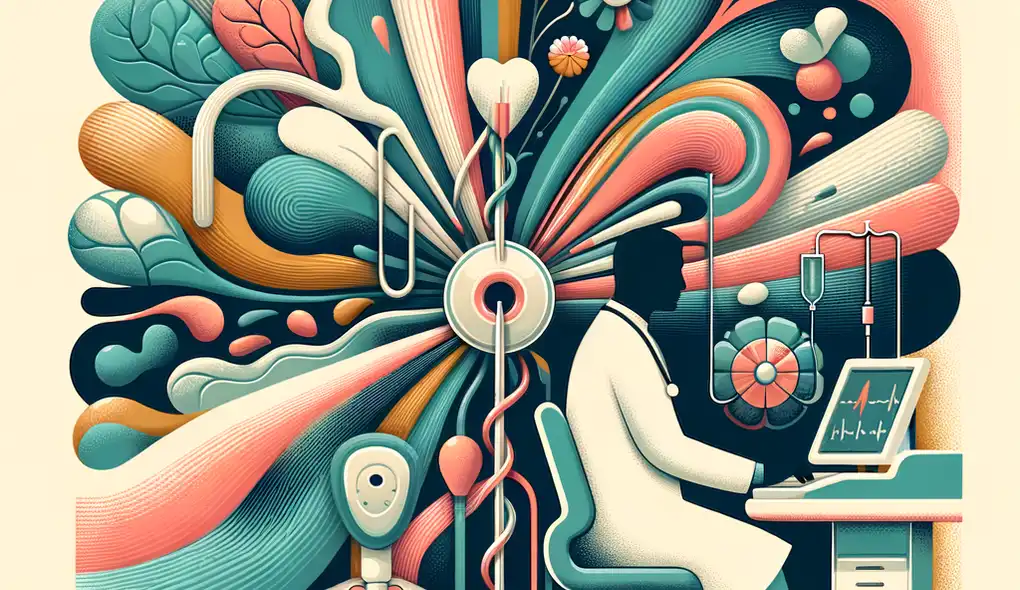Tell us about a time when you faced an ethical dilemma in your role as an interventional radiologist. How did you handle it?
Interventional Radiologist Interview Questions
Sample answer to the question
In my role as an interventional radiologist, I faced an ethical dilemma when a patient's family requested me to withhold critical information about their loved one's condition. While I understood their emotional distress, I firmly believed in the importance of transparent communication. To handle the situation, I approached the family with compassion and empathy, explaining the ethical obligation of providing accurate information to the patient and involving them in the decision-making process. I assured the family that I would support them throughout the process and address any concerns they had. Ultimately, by fostering open dialogue and respecting the patient's autonomy, we were able to find a middle ground where the family could be involved while ensuring the patient's right to know their own medical details.
A more solid answer
During my tenure as an interventional radiologist, I encountered an ethical dilemma involving the appropriate disclosure of a patient's diagnosis. The patient, Mr. Smith, had come for a routine procedure, but our findings revealed an unexpected and serious medical condition. Knowing the impact this information could have on Mr. Smith's well-being, I discussed the situation with my multidisciplinary team, including the oncologist, to ensure we had a holistic perspective. While Mr. Smith's family requested us to withhold the diagnosis, I believed in the importance of respecting patient autonomy and providing complete information. With utmost sensitivity, I engaged in a conversation with the family, empathizing with their concerns and fears. I emphasized the need to empower the patient in making informed decisions about their health. Together, we devised a communication plan that involved breaking the news gently while offering continuous support throughout the process. This approach not only respected the family's emotions but also honored our ethical responsibility.
Why this is a more solid answer:
The solid answer provides specific details and examples that highlight the candidate's clinical judgment, patient communication, ethics, and collaboration skills. It demonstrates their ability to make informed decisions, engage in multidisciplinary discussions, communicate effectively with patients and families, and navigate ethical dilemmas while upholding professional responsibilities. However, it can be further improved by including additional information on the outcome and impact of the candidate's actions.
An exceptional answer
In my role as an interventional radiologist, I encountered an ethical dilemma involving a delicate situation with a pediatric patient. A 12-year-old child, Jenny, required an interventional procedure, but her parents strongly opposed it due to religious beliefs. While I deeply respected their convictions, I recognized the urgency of the situation and the potential consequences of delaying treatment. I engaged in extensive conversations with the parents, taking time to understand their concerns and fears. I collaborated with the hospital's ethics committee and arranged a meeting to address the ethical implications involved. During the meeting, we discussed the child's best interests, the potential harm of delay, and the legal and ethical responsibilities as medical professionals. Through open dialogue, we were able to reach a consensus that allowed us to proceed with the procedure while ensuring the parents' religious beliefs were respected. This involved making certain accommodations, such as involving a hospital chaplain to provide emotional support and guidance during the procedure. The successful outcome not only saved Jenny's life but also strengthened the trust between the parents, the healthcare team, and the hospital.
Why this is an exceptional answer:
The exceptional answer provides a detailed and impactful example that showcases the candidate's exceptional clinical judgment, patient communication, ethics, and collaboration skills. It demonstrates their ability to handle highly sensitive situations, engage in challenging conversations, collaborate with ethics committees, navigate legal and ethical complexities, and find innovative solutions that prioritize both patient care and respect for religious beliefs. The answer highlights the candidate's commitment to comprehensive patient care, their ability to think critically and ethically, and their dedication to collaborative problem-solving. The exceptional answer demonstrates the candidate's exceptional abilities in all the evaluation areas mentioned.
How to prepare for this question
- Familiarize yourself with ethical guidelines and principles relevant to interventional radiology.
- Reflect on past experiences where you faced ethical dilemmas in the medical field and think about how you handled them.
- Practice articulating your thought process and reasoning behind the decisions you made during ethical dilemmas.
- Consider the potential impact of your decisions on patient care, patient autonomy, and collaboration with other healthcare professionals.
- Stay updated with current ethical debates and discussions in the field of interventional radiology.
What interviewers are evaluating
- Clinical judgment
- Patient communication
- Ethics
- Collaboration
Related Interview Questions
More questions for Interventional Radiologist interviews